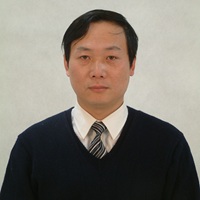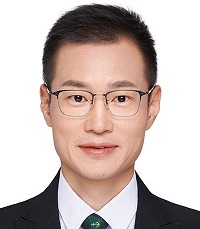ICSIP Keynote Speakers
|
Fellow of IEEE Jiankun Hu is an IEEE Fellow, AAIA Fellow, and a full professor of Cyber Security at the School of Engineering and Information Technology, the University of New South Wales at the Australian Defence Force Academy (UNSW@ADFA), Australia. His primary research interests are computer networking and computer security, especially biometric security. He has been awarded 11 Australian Research Council Grants. He served as Security Symposium Co-Chair for IEEE GLOBECOM ’08 and IEEE ICC ’09. He served on the Panel of Mathematics, Information and Computing Sciences (MIC), ARC ERA (The Excellence in Research for Australia) Evaluation Committee 2012. He was Program Co-Chair of the 2008 International Symposium on Computer Science and its Applications. He is serving as an Associate Editor of IEEE OJCS and served as Senior Area Editor of the IEEE TIFS. He received a bachelor’s degree in industrial automation in 1983 from Hunan University, PR China; a PhD in engineering in 1993 from the Harbin Institute of Technology, PR China; and a Master’s degree in research in computer science and software engineering from Monash University, Australia, in 2000. In 1995, he completed his postdoctoral fellowship work in the Department of Electrical and Electronic Engineering, Harbin Shipbuilding College, PR China. He was a research fellow of the Alexander von Humboldt Foundation in the Department of Electrical and Electronic Engineering, Ruhr University, Germany, during 1995–1997. He worked as a research fellow in the Department of Electrical and Electronic Engineering, Delft University of Technology, the Netherlands, in 1997. Before he moved to RMIT University, Australia, he was a research fellow in the Department of Electrical and Electronic Engineering, University of Melbourne, Australia. Prof. Hu is active in the fields of biometrics, image processing, AI, and information security, with publications in top venues including IEEE Transactions on Pattern Analysis and Machine Intelligence, IEEE Transactions on Information Forensics and Security, IEEE Transactions on Dependable and Secure Computing, IEEE Transactions on Computer, and IEEE Transactions on Image Processing. He has Google citations of 20248 and h-index of 75. Keynote Title: Post-quantum Bio-Cryptography Abstract: Conventional identity authentication is based on a secret, such as a PIN or password (knowledge), and/or on possession. Unfortunately, it is well known that knowledge- and possession-based authentication mechanisms have a fundamental flaw: they cannot identify genuine users, as passwords and tokens can be stolen or guessed. Also, passwords are not user-friendly because a long, random password is strong in security but hard to memorize, while a short, easily memorized password can be easily broken. Biometrics such as fingerprints, faces, irises, and Electroencephalogram (EEG) signals represent an individual’s unique characteristics and can be used to address this genuine authentication problem. Also, they are very user-friendly as we do not need to memorize our biometrics, and they cannot be lost. Voluntary biometrics such as fingerprints, EEG, etc., are hard to steal. Nevertheless, biometric authentication services have been widely deployed, and biometric privacy has been legally regulated in many countries. This talk will discuss privacy-preserving biometric authentication and some of the latest developments in emerging Bio-Cryptography, including post-quantum Bio-Cryptography. |
|
Fellow of IEEE Guan Gui (Fellow, IEEE) received his Ph.D. degree from the University of Electronic Science and Technology of China, Chengdu, China, in 2012. From 2009 to 2014, he was a research assistant and postdoctoral research fellow at Tohoku University, Japan. From 2014 to 2015, he was an Assistant Professor at Akita Prefectural University in Japan. Since 2015, he has been a Professor at Nanjing University of Posts and Telecommunications, China. His research focuses on intelligent sensing and recognition, intelligent signal processing, and physical layer security. Dr. Gui has authored over 200 IEEE journal and conference papers and received several best paper awards, including at ICC 2017, ICC 2014, and VTC 2014-Spring. He is a fellow of IEEE, IET, and AAIA, and he is recognized for his contributions to intelligent signal analysis and wireless resource optimization. Among his accolades, he received the IEEE Communications Society Heinrich Hertz Award in 2021 and was named a Clarivate Analytics Highly Cited Researcher from 2021 to 2024. Dr. Gui is a Distinguished Lecturer for the IEEE Vehicular Technology Society (VTS) and the IEEE Communications Society (ComSoc). He is an editorial board member for several leading journals, including the IEEE Transactions on Information Forensics and Security, IEEE Internet of Things Journal, and IEEE Transactions on Vehicular Technology. Additionally, he serves as the Editor-in-Chief of KSII Transactions on Internet and Information Systems. He has also held prominent roles in international conferences, such as Executive Chair of IEEE ICCT 2023, Executive Chair of VTC 2021-Fall, and Vice Chair of WCNC 2021. |



